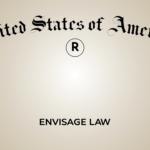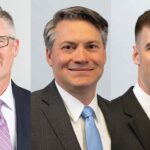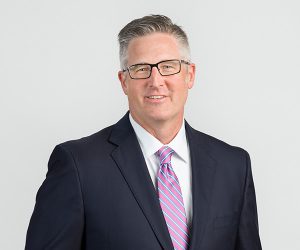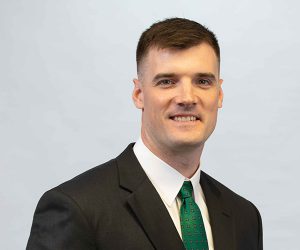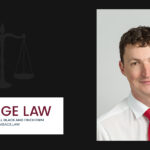Protecting Your Brand Name with Trademarks: Questions & Answers
By Anthony J. Biller, Partner
The reputation and favor that comes from a good name is something to be sought after, treasured, and guarded. Solomon says that if given a choice, he would choose the favor of a good name over gold, silver, and costly perfume; or, as Eugene Peterson poses, “it’s better than a fat bank account.” (Pro 22:1, Ecc 7:1) In short, names have value and are worth protecting. A name can authenticate, giving others confidence in the product where the name is displayed. A name properly used can safeguard against the deceit of another trying to counterfeit the message or product.
Similarly, there is value in giving honor to another’s name. As Luke wrote of Cornelius, “an upright and God-fearing man, who is well spoken of by the whole Jewish nation (ESV, Acts 10:22). John identified Demetrius as having “received a good testimony from others.” (ESV, 3 John 12) There is value in respecting the names of others and not trying to pass them off as our own, which could damage their (and our own) reputation. In addition to honoring a person or organization’s name (Rom 12:10), kindness is foundational. (Pro 21:21). Ask yourself, how would you want another to treat your name? (Mat 7:12)
It is little wonder that businesses and organizations go to such extraordinary steps to protect their name and the reputation that comes with their name. In fact, the “life blood” of a trademark is “goodwill.” The failure to transfer goodwill as part of a trademark assignment can invalidate the assignment.
Organizations and businesses want consumers and users of products to have confidence that when they see their name, the source of those products or services is understood. They want to make sure that their consumers are not being deceived by counterfeits or confused into believing someone or something is associated with them, when they are not. The laws of trademarks seek to protect these identity rights.
Trademarks are a name(s), a word, or a combination of words, letters, and numbers (or, in some cases, an image) that establish an identity for an organization. A trademark protects and contains their goodwill and helps build relationships with consumers or users. Trademarks are an identifier of source that enable customers to identify a company’s goods or services by distinguishing them from others. Trademark law protects the identity or brand of an organization by discouraging others from selecting a confusingly similar name or logo. Trademark law provides legal protection for a brand and guards against confusion, counterfeiting and fraud.
Trademarks are different from copyright. Copyright protects against the copying of, creative expressions of original works such as literary works, audio creations, photography, video, and graphics. On the other hand, a trademark protects names (words), logos, and symbols used by providers of goods and services to identify the source of their goods and services.
There is no such thing as global trademark law or a universal global trademark.
In most countries, trademark protection is obtained through registration at national and regional levels, making trademark rights generally national and country-specific. In the United States, it is not necessary to have a trademark registration to protect your rights, but it is recommended. When a business or organization seeks a global trademark strategy, they should understand each country’s laws where they are doing business and obtain trademark rights in each country. While governments create trademark laws according to their policy goals, most countries have similar procedures and protocols for obtaining trademark rights. Many countries, to include the United States and the EU, have entered into a treaty, the Madrid Protocol, to make it easier for citizens of member countries to register and protect their trademarks in other member countries. Trademark acquisition is one area of law where having legal expertise from an attorney skilled in trademark law is necessary and critical.
U.S.A. Trademarks Q&A
1. What sources of law govern trademarks?
In the United States, the principal federal statute is the Lanham Act, codified as 15 U.S.C. (United States Code) Section 1051 and following. Federal law provides the primary source of trademark protection, although trademark is also governed by state laws. Federal trademark law offers the most comprehensive source of protection.
2. What is a trademark?
A trademark can be any word, phrase, symbol, or design (or a combination) used by a business or organization that identifies the origin of its goods or services. It’s how customers or users recognize a business in the marketplace and distinguish it from its competitors. The word “trademark” can refer to both trademarks and service marks. A trademark is used for goods, while a service mark is used for services.
3. What does a trademark accomplish?
- Identifies the source of goods and services.
- Provides legal protection for brands.
- Protects against source confusion and counterfeits.
- Preserves goodwill in the corresponding goods and services.
4. What makes an inherently strong trademark?
Trademarks are supposed to tell a consumer “who” the good or service is, not “what” it is. An inherently strong trademark does this – immediately serves as a a source identifier, i.e., tells the consumer the good/services comes from a particular source. Inherently strong marks are distinctive, creative and unique. The stronger your trademark is, the more easily others can be prevented from using it without permission. Weak trademarks can be difficult and costly to defend as they do not have the same legal protections as stronger trademarks. The analysis of what constitutes an inherently strong versus inherently weak trademark depends on the context of use, i.e., what goods/services are being used in conjunction with the mark. For example, “apple” is generic and unprotectable when used in conjunction with the fruit but is “arbitrary” and strong when used as the name of a computer.
5. What are the four categories of trademarks?
There is a “taxonomy” of trademarks that governs which marks are inherently strong and immediately function as trademarks, which can acquire trademark significance, and which may never be given trademark protection. They are as follows, from inherently strongest to weakest:
Fanciful (coined) trademarks are words invented for just this purpose. They only have meaning relative to a product or service. Examples are Qdoba for a restaurant, Pepsi for soft drinks, and PanOxyl for an acne wash. These can have the most robust protection.
Arbitrary trademarks are actual words but have no association with the goods or services they describe, as in the term “apple.” The USPTO uses the example of an orchard trying to register the word “apple” as a trademark. Apple in that context couldn’t be registered as it is generic, whereas Apple for computers is unique and arbitrary and thus serves as a trademark. Arbitrary marks also have strong protection.
Suggestive trademarks are words that “suggest” a product or service quality but don’t state the quality of the goods or services outright. Suggestive marks require “sequential thought” to connect the mark to the goods/services. This is what the 7-11 trademark does for the convenience store, suggesting longer hours for convenience. Mustang is similar in that it suggests that their cars are speedy and strong. Coppertone for tanning lotion and London Fog for raingear are also suggestive marks. Suggestive trademarks are immediately entitled to trademark protection and are deemed “inherently” strong.
Descriptive trademarks immediately communicate an attribute or ingredient of the good or service, an intended benefit, geographic origins or anything else that immediately describes the good or service. Apple Cinnamon for potpourri, “Sharp” for televisions and American Airlines for transportation are examples of descriptive marks that are not inherently distinctive. Instead of telling the consumer “who” the mark is, they immediately convey information about the goods or services. Descriptive marks may, however, be protectable if they develop a “secondary” meaning over time, i.e., when consumers come to recognize that mark is not just a descriptor, but it is also telling the consumer “who” the product or service is. Perhaps the most famous “descriptive” mark is Budweiser, a beer originally made from a lager recipe from Budweis, Czechoslovakia.
Generic marks are never given trademark rights. They are the everyday name for goods and services. They do not indicate source; they indicate the genus of the good/service. Even if one could establish strength through use in the generic use, courts will not convey trademark rights as that would entail removing the word from normal lexical use. Examples include “apple” for the fruit, “bagel shop” for a bagel shop, and “ale house” for restaurants that serve beer.
6. What is Acquired trademark strength?
Acquired trademark strength is the consumer recognition and familiarity of a mark based on success in the marketplace. Even inherently weak marks can obtain substantial strength based on substantial commercial success in the marketplace.
7. What is trademark infringement?
Trademark infringement is the unauthorized use of a trademark or service mark on or in connection with goods and/or services in a manner that is likely to cause confusion, deception, or mistake about the source of the goods and/or services.
8. Can trademark rights be established without registration?
Yes, in the United States, it is not necessary to have a registration to protect trademark rights. In many other countries, a registration is required.
9. What benefits does trademark registration provide?
Trademark registrations create a presumption of ownership and trademark validity. They also create additional rights for purposes of enforcement, and in some jurisdictions, are necessary in order to enforce the trademark. Most major e-commerce and social media platforms have robust trademark infringement “take down” mechanisms that work much better if the complainant has a registered trademark.
10. Who can apply for a trademark?
In the United States, any trademark owner who uses a mark in commerce or who intends to use a mark in commerce may file an application to register a trademark. In most of the rest of the world, anyone who intends to use a mark within the particular jurisdiction within the next several years may apply and register a trademark.
11. When should an attorney be consulted regarding trademarks?
- When adopting a mark or expanding use into new countries, particularly to “clear” the mark against potential infringement, i.e. to make sure the mark will not potentially infringe the rights of others
- When applying to register a mark
- When you believe someone is infringing your mark or you are accused of infringement
- When your mark becomes successful, and you desire to “police” against third party encroachment against your brand through trademark watch services
- When licensing or otherwise entering into arrangements for others to use your trademark outside your immediate control
Anthony Biller is a founding partner of Envisage Law, where he devotes a significant portion of his time managing trademark assets for clients worldwide and engaging in intellectual property litigation across the United States.
unfoldingWord is a non-profit ministry whose mission is a Church in every people group with a Bible in every language. It equips Church leaders worldwide with open-licensed biblical resources and effective training, empowering them to disciple new believers and translate the Bible with excellence and efficiency.
Bruce Erickson is a consultant, writer, and student of IP law. After a 35-year career as a radio broadcaster, he served as IP Manager for unfoldingWord. He is an alumnus of Seton Hall School of Law where he received a Masters in Intellectual Property Law (MSJ).
This article is licensed under a Creative Commons Attribution 4.0 International License
Attribution CC by (creativecommons.org/licenses/by/4.0/).


